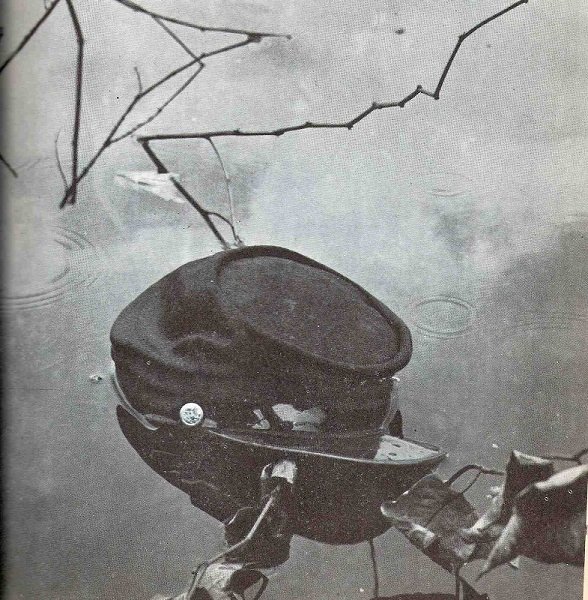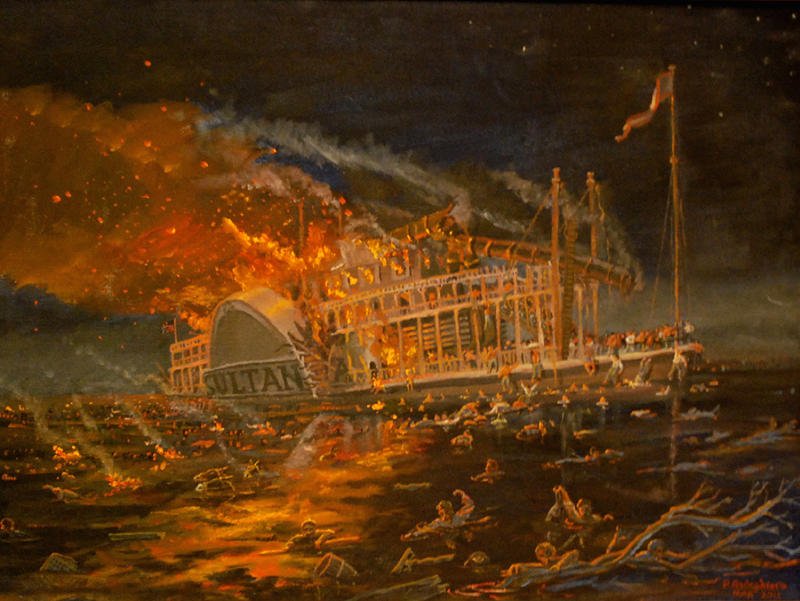
This tale starts as many a disaster does. A story of loss of life, taken by the greed and corruption of mankind. A loss of life greater than the Titanic, so great that it is the single largest maritime disaster of the United States. Yet so few know about it. Allow me to tell you what happened.
It was April 24th, 1865 and Anna Annis, her 7 year old daughter Belle, and husband, Lt Harvey Annis had booked a private cabin on the steamboat Sultana. It was the end of the Civil War and her husband had just resigned his commission, they were all happy to be headed home.
When they arrived to board they saw that the Sultana had been packed full of returning POW’s, all eager to get home as well. The 1,719 ton, 4 boiler, paddlewheel ship had a legal capacity of 376 – while the Captain, J. Cass Mason, had allowed near 2,500 total people onboard. There was no room to move, no room to sleep, the men were packed shoulder-to-shoulder.
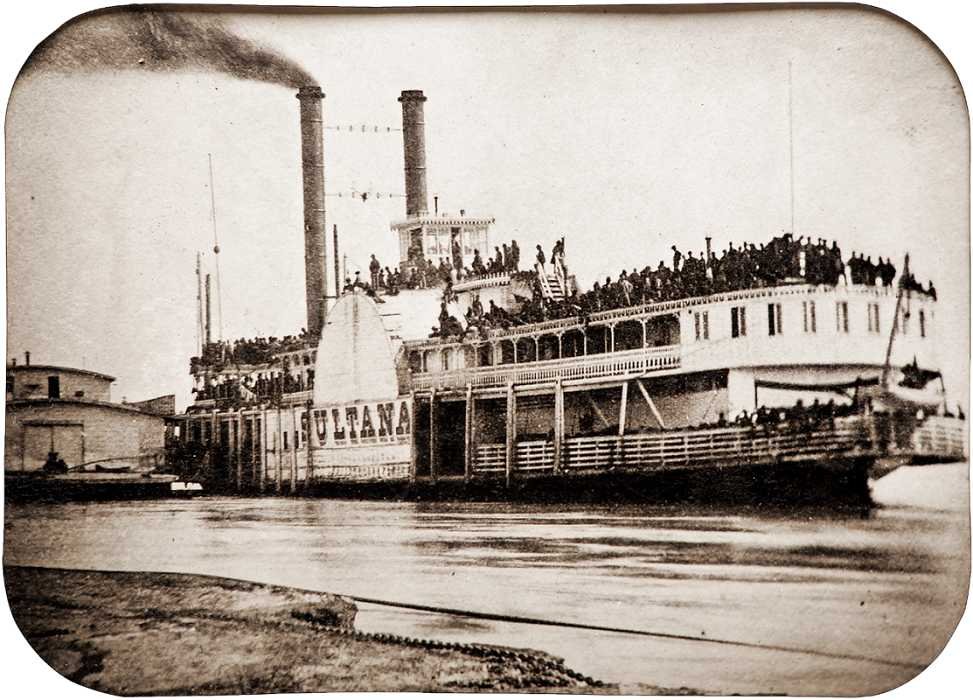
The weight of all these men made the floorboards sag, and extra supports had to be quickly put in place. The former POW’s didn’t mind too much though, after being in Confederate prison camps they had been accustomed to hardship and the thought of heading home made it all worth it.
Mrs. Annis did mind though, and made a complaint to the Sultana’s chief clerk, but he assured her that it would be ok. Her husband allayed her worries by telling her they could just stay in their cabin, that the amount of men onboard wouldn’t be much of a problem. He wanted to get back home and continue their lives that had been so disrupted because of the conflict. Anna reluctantly followed the wishes of her husband.
The Sultana left Vicksburg at 9 p.m. that night, and stopped in Memphis on April 26th to load up on coal. By midnight she was on her way north, up the Mississippi again.
At 2 a.m., a boiler exploded, then two more. Fire and steam spread throughout the interior of the ship. Its two smokestacks collapsed, crushing the top deck – killing hundreds of men. Panicked men jumped off the decks into the river, rather than try to fight the intense flames.
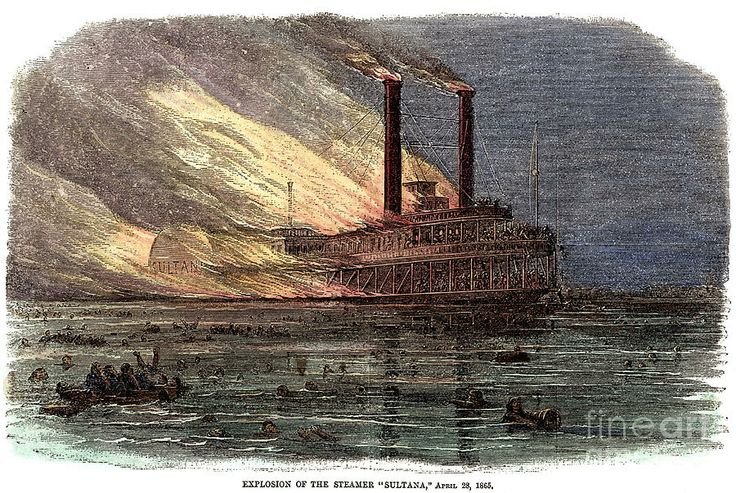
Awakened by the first explosion, her husband opened the door to their cabin to see what was going on. A cloud of steam met him in the open doorway. Quickly he closed the door and put life preservers on his wife and himself. Then, picking up his daughter in his arms, told her to follow him.
They ran through the hot, steamy corridors towards the stern of the ship. Her husband climbed down a rope to the lower deck while holding Belle and told Anna to follow. While she was climbing down, a panicked man jumped and knocked her off the rope into the ships hold. Her husband, luckily, was able to pull her back up.
Holding their daughter tightly, he jumped from the flaming ship. Anna jumped too. As soon as she hit the water her life jacket became loose, it had been fastened improperly. The current was so strong she was lucky to be able to grab ahold of the ships rudder.
Anna was frantic to see where her husband and child were! There! She saw them downriver, being carried by the current, then they were gone. Sinking below the surface. As they drowned the fire began to burn the rudder, Anna held on even though the flames were burning her arms until she couldn’t take it anymore. Fatefully a piece of wood plank was carried into reach by the current and she managed to lunge for it and float away.
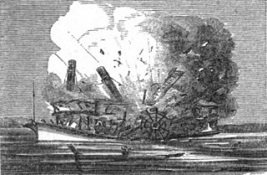
Then the last boiler exploded, and it rained fire and debris all around.
The only light that night was from the burning carcass of the Sultana, it illuminated scores of wreckage and hundreds of dead bodies. Around her were the other survivors, some badly wounded, all holding onto some piece of floating wreckage. A few of the men noticed they all looked like frogs, and began to croak.
Anna was later rescued by Corporal Albert King from a Navy gunboat that had headed upriver from Memphis to investigate. Stricken with grief over losing her daughter and husband she took off her wedding ring and handed it to King.
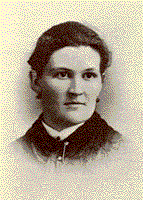
“Everything I had is gone except my wedding ring, take it as a reward, I no longer need it.”
Anna was still young during the disaster, but never remarried. From then on she always wore long sleeves with lace around the wrist to cover the scars on her arms. I don’t know what she did to hide the ones people can’t see. She died at the age of 80.
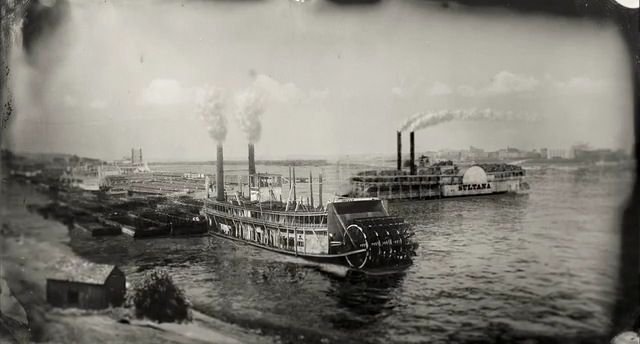
The Sultana had suffered a boiler leak on its way into Vicksburg, a seam had cracked and bulged outward. Knowing that a proper repair would take 3 or 4 days, and the prisoners would be transferred to any other riverboat that came along, he ordered the bulge to be hammered back and a much too thin plate riveted over the seam. A repair that only took a day at most.
Due to a paperwork mixup, the number of POW’s assigned to board the Sultana ballooned to 2,100. Combined with crew, normal passengers and prisoners, there were approximately 2,500 people on board.

April of 1865 was a busy month for the United States. On April 9th, Lee had surrendered at Appomattox. On the 14th Lincoln had been assassinated. The 26th was when John Wilkes Booth was found and killed, and it was the day that the last Confederate army surrendered. With all these events going and a nation desensitized to death, the Sultana disaster never became a topic that warranted much attention.

With between 1700-1800 dead, about 200-300 more than the Titanic in which 1,512 or so died. The Sultana explosion was the greatest maritime disaster in US history. Of the 800 or so rescued, about 200-250 died in hospital, leaving only a total of approximately 550 survivors.
No one was ever held accountable for the disaster. Sultana’s Captain Mason died. Captain Speed who sent the POW’s to Vicksburg from the prison camp was tried and found guilty, but that verdict was overturned since he never put a soldier on the boat. Captain Williams who had boarded the men was a West Point graduate, so the military generals would never put one of their own on trial. Finally, Lt Col Hatch – the culprit most believe responsible - quickly left the military, so he was no longer accountable to a military court.
The course of the Mississippi has changed since that day, and now the wreckage is said to lie 32 feet beneath a farmer’s field – some 2 miles from the river flows today.
